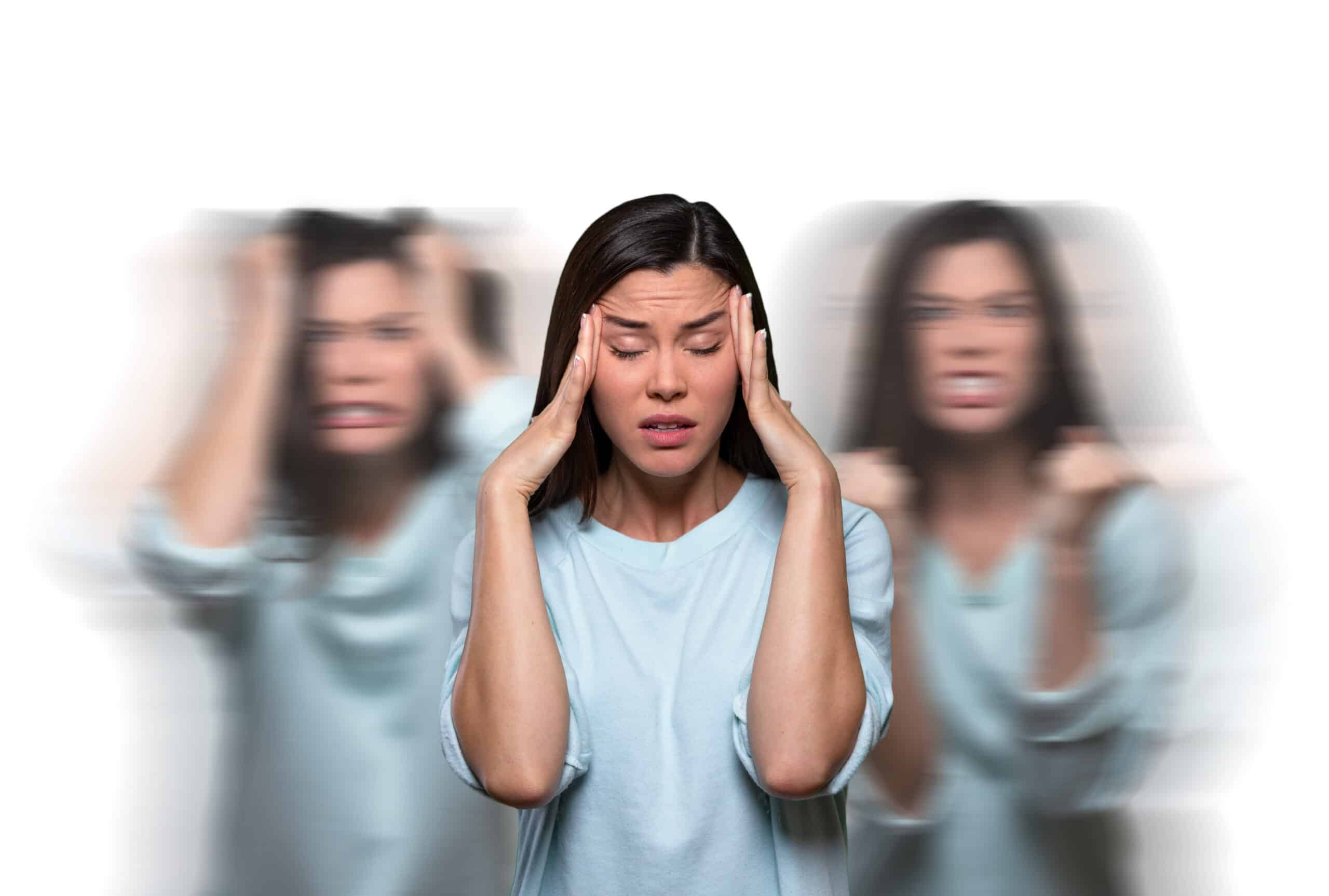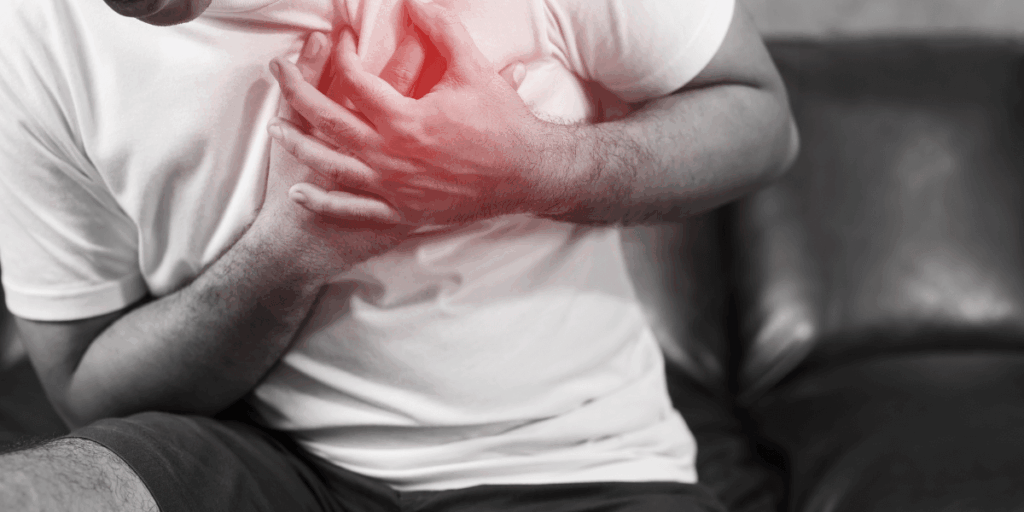Can Anxiety Cause Chest Pain? The Connection
You’re going about your day when suddenly you feel a tightness in your chest. Your heart races, your breathing gets shallow, and for a moment, it feels like something is seriously wrong. It’s easy to assume the worst — especially when chest pain is involved.
But what if what you’re feeling isn’t a heart attack? What if it’s anxiety?
Chest pain and anxiety are more connected than most people realize. At The Meadowglade, we’ve seen how intense emotional distress can show up in very real physical ways. This article will explore how anxiety causes chest pain, how to tell the difference between anxiety and heart-related issues, and what you can do to find relief — including professional support if you need it.
If you or a loved one are struggling with mental health and its related symptoms, don’t wait to seek help. Call us today or visit our admissions page to start your path to healing.
Understanding the Anxiety-Chest Pain Connection
Chest pain is one of the most alarming symptoms of anxiety, and it’s more common than you might think. When your body perceives a threat — even a non-physical one like a stressful thought or situation — it goes into “fight or flight” mode. This stress response causes a flood of adrenaline and other stress hormones, which in turn affect your heart rate, breathing, and muscle tension.
Here’s how that can result in chest pain:
- Muscle tension: Anxiety often causes your chest muscles to tighten, leading to a sensation of pressure or soreness.
- Rapid breathing or hyperventilation: When you’re anxious, you may take fast, shallow breaths. This can create an imbalance of oxygen and carbon dioxide in your bloodstream, causing dizziness, lightheadedness, and chest discomfort.
- Increased heart rate: Anxiety can lead to palpitations or a pounding heart, which may feel like chest pain or mimic cardiac symptoms.
According to the Woodlands Heart Institute, anxiety-induced chest pain typically feels sharp or stabbing and tends to occur when you’re at rest rather than during physical exertion — the opposite of most heart-related chest pain. It may come and go quickly and is often accompanied by other anxiety symptoms like sweating, trembling, or a sense of impending doom.

Anxiety vs. Heart-Related Chest Pain: How to Tell the Difference
Distinguishing between anxiety-related and heart-related chest pain isn’t always easy — and when in doubt, you should always seek medical attention.
However, there are a few general guidelines to consider:
| Feature | Anxiety-Related Chest Pain | Heart-Related Chest Pain |
| Timing | Often happens at rest or during stress | Usually triggered by physical exertion |
| Type of Pain | Sharp, stabbing, or sudden discomfort | Dull, heavy pressure or tightness |
| Duration | Brief or comes in waves | Typically lasts more than a few minutes |
| Location | Anywhere in the chest, sometimes moves around | Usually centered behind the breastbone |
| Other Symptoms | Sweating, dizziness, rapid heartbeat, feeling panicked | Shortness of breath, nausea, pain radiating to arm |
If your chest pain is new, persistent, or severe, seek immediate medical care. Once heart-related causes are ruled out, it’s time to explore whether anxiety might be playing a role.
How Anxiety Feels in the Body
Anxiety is more than just “worry.” It affects the entire body — not just the mind. Along with chest pain, you might also experience:
- Racing heartbeat
- Difficulty breathing
- Tightness in the throat
- Upset stomach or nausea
- Sweaty palms
- Muscle aches or tension
- Trouble sleeping
At The Meadowglade, we understand that these physical symptoms are not just “in your head.” They’re very real and very disruptive. Left untreated, anxiety can interfere with your relationships, your work, and your ability to enjoy life.
When Chest Pain and Anxiety Become Chronic
For some people, anxiety-induced chest pain becomes part of a recurring cycle. The fear of the chest pain itself can cause more anxiety, which leads to more chest pain — creating a feedback loop that feels impossible to break.
This is especially common in people with panic disorder or generalized anxiety disorder. Over time, they may start avoiding situations that could trigger anxiety, leading to isolation, depression, and even substance use as a way to cope.
This is where professional support can make a life-changing difference.

Finding Relief: What You Can Do
If you’re struggling with anxiety-related chest pain, there are steps you can take to feel better:
1. Practice deep breathing
Slow, deep breathing can help calm the nervous system and reduce chest tension. Try inhaling through your nose for four seconds, holding for four, and exhaling slowly for six.
2. Challenge anxious thoughts
Cognitive behavioral therapy (CBT) techniques help identify and reframe irrational fears that may be fueling your anxiety.
3. Stay active
Regular physical activity helps regulate mood, improve sleep, and reduce muscle tension. Even a daily walk can help.
4. Avoid stimulants
Caffeine, nicotine, and certain medications can increase your heart rate and worsen anxiety symptoms.
5. Seek professional help
If anxiety is affecting your daily life, therapy and medication (when appropriate) can help you find balance and peace again.
Why The Meadowglade?
Located in Moorpark, California, The Meadowglade offers a serene environment for healing from anxiety, depression, trauma, and addiction. Our whole-person approach addresses not only the mental and emotional roots of anxiety, but the physical toll it can take — including symptoms like chest pain.
We offer:
- Individual and group therapy
- Mindfulness and stress reduction techniques
- Holistic wellness treatments like yoga and art therapy
- Medical and psychiatric support for those with co-occurring disorders
Anxiety doesn’t have to control your life — and you don’t have to face it alone.
Contact Us for Support
If you’re experiencing anxiety that’s showing up in your body — whether it’s chest pain, fatigue, or restlessness — it may be time to talk to someone who understands.
At The Meadowglade, we specialize in treating anxiety and its related symptoms through compassionate, evidence-based care. Our team will help you develop a personalized treatment plan that supports your healing — mentally, emotionally, and physically.
Reach out to us today to learn more about our residential and outpatient treatment programs in Moorpark, CA. Whether you’re just starting to explore what’s going on or are ready to take the next step, we’re here for you.
Your path to balance, clarity, and well-being starts here. Call us now at 888-296-6412 or verify your insurance now.

